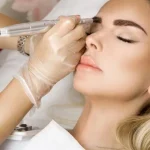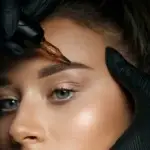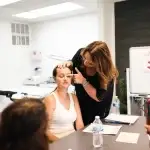Permanent makeup is a game-changer for those looking to enhance their natural features effortlessly. Whether you’re considering permanent eyebrows, eyeliner, or lip blush, this procedure offers a long-term beauty solution. However, before committing to a cosmetic tattoo, there are essential factors to weigh to ensure you’re making the right decision. This guide walks you through the top 10 considerations, helping you determine if permanent makeup is the right choice for you.
Understanding Permanent Makeup
Permanent makeup, also known as micropigmentation, is a semi-permanent cosmetic tattooing technique that enhances facial features. Unlike traditional tattoos, this procedure uses pigments that fade over time, requiring maintenance. It is commonly used for defining eyebrows, eyeliner, and lips, creating a polished look without daily makeup application.
1. Your Skin Type and Healing Process
Your skin type plays a crucial role in how well permanent makeup will retain its pigment. Oily skin may cause pigment to fade faster, while dry or sensitive skin may require extra aftercare to heal properly. Understanding your skin type helps in setting realistic expectations about longevity and touch-ups.
2. Choosing the Right Technician
Selecting a certified and experienced technician is critical. Look for professionals with a proven track record, positive reviews, and a portfolio showcasing their work. Ask about their training, sanitation practices, and the pigments they use to ensure safety and quality results.
3. Permanent Makeup Cost and Maintenance
The cost of permanent makeup varies based on the procedure, technician, and location. On average:
- Eyebrows: $400 – $800
- Eyeliner: $300 – $600
- Lips: $500 – $1,200
Maintenance is another factor—most procedures require a touch-up 4-6 weeks after the initial session, followed by yearly touch-ups to maintain vibrancy.
4. Pain Level and Numbing Options
Pain tolerance varies from person to person. While numbing creams are applied to minimize discomfort, some areas (like lips) may be more sensitive than others. Discuss numbing options with your technician to ensure a more comfortable experience.
5. Healing and Downtime
After the procedure, expect slight swelling, scabbing, and color changes as the pigment settles. Healing generally takes 7-14 days, with complete color stabilization within 4-6 weeks. Following aftercare instructions is essential to prevent complications and ensure the best results.
6. Longevity and Fading Factors
Permanent makeup fades over time due to factors such as skin type, sun exposure, and skincare products. Using sunscreen, avoiding exfoliants on treated areas, and scheduling touch-ups will help maintain the results for longer.
7. Contraindications and Medical Considerations
Not everyone is an ideal candidate for permanent makeup. You should avoid the procedure if you:
- Are pregnant or breastfeeding
- Have diabetes (without doctor’s approval)
- Have blood disorders or take blood thinners
- Have skin conditions like eczema or psoriasis in the treatment area
- Are prone to keloid scarring
Always consult your technician and, if necessary, a medical professional before proceeding.
8. Style and Color Selection
Choosing the right shape, color, and technique is vital to achieving natural-looking results. Technicians consider factors like your skin undertone, facial structure, and natural hair color to create a harmonious look. Bringing reference photos and discussing preferences with your technician can help align expectations.
9. Risks and Side Effects
As with any cosmetic procedure, there are potential risks, including:
- Allergic reactions to pigments
- Infection due to improper aftercare
- Uneven fading or pigment migration
- Dissatisfaction with shape or color
To minimize risks, follow proper aftercare and choose a reputable technician who prioritizes hygiene and client satisfaction.
10. Commitment and Lifestyle Considerations
Permanent makeup is a long-term commitment. While it offers convenience, it also requires periodic touch-ups. Additionally, if you frequently undergo cosmetic treatments like laser facials or chemical peels, they may accelerate pigment fading. Consider how the procedure aligns with your lifestyle before making a decision.
Ready to Enhance Your Beauty?
At Beauty Planet Permanent Makeup, we specialize in enhancing your natural beauty with expertly applied permanent makeup. Our skilled technicians in North Brunswick Township, NJ, ensure a safe, professional, and satisfying experience tailored to your needs.
📍 Location: 1835 US-130, North Brunswick Township, NJ
📞 Phone: 856-702-BROW
📧 Email: Beautyplanetpermanent@gmail.com
Book a consultation today and take the first step towards effortless beauty!
By considering these factors, you can confidently decide whether permanent makeup is right for you. Whether you’re looking for perfectly shaped eyebrows, defined eyeliner, or a natural lip tint, a skilled professional can help you achieve your desired look with long-lasting results.
Frequently Asked Questions
1. How long does permanent makeup last?
Permanent makeup lasts between 1-3 years, depending on skin type, lifestyle, and maintenance.
2. Is permanent makeup painful?
Mild discomfort is expected, but numbing creams significantly reduce pain levels.
3. How soon can I wear makeup after the procedure?
Avoid applying makeup on the treated area for at least 7-10 days to prevent infection.
4. Can I remove or correct permanent makeup?
Yes, corrections and removals can be done through laser treatments or saline removal techniques.
5. What is the best season to get permanent makeup?
Fall and winter are ideal since reduced sun exposure helps pigment retention and healing.
6. How do I prepare for my appointment?
Avoid alcohol, caffeine, and blood thinners 24 hours before the procedure for better pigment retention.
7. What if I have a history of cold sores?
If you’re getting lip blushing, take antiviral medication beforehand to prevent flare-ups.
8. Can I work out after getting permanent makeup?
Avoid heavy sweating for at least 7 days to prevent premature fading.
9. Are touch-ups necessary?
Yes, an initial touch-up is required after 4-6 weeks, and annual maintenance is recommended.
10. Will the color look natural?
Yes, an experienced technician selects pigments based on your natural tones for a subtle, natural look.






